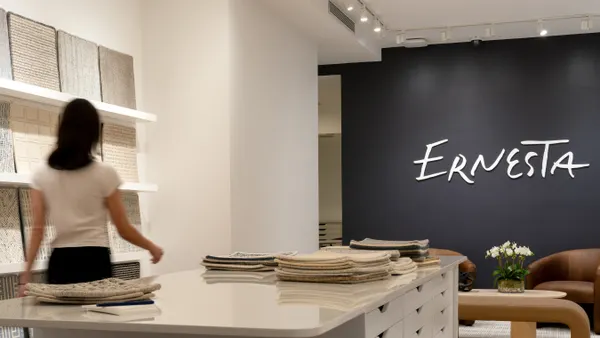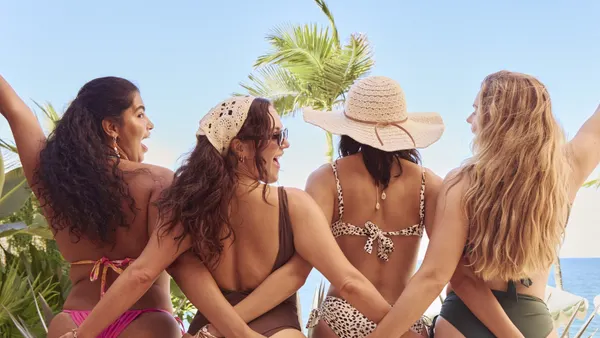Dive Brief:
- Brand licensing conglomerate Authentic Brands Group has filed papers for an initial public offering as it looks to keep expanding its revenue and intellectual property portfolio. The initial offering is for $100 million, a figure recorded purely for filing purposes and that could increase.
- The company's revenue has grown from $1 million in 2010, its founding year, to $489 million in 2020, according to its prospectus. Authentic Brands — which owns or co-owns Forever 21, Barneys New York, Nine West, Nautica, Brooks Brothers, Lucky and other brands — is profitable, too, with $225.3 million in net income in 2020.
- In a letter to prospective investors, CEO Jamie Salter noted that Authentic Brands has completed more than 30 brand acquisitions, works with more than 700 operating partners globally and generates some $10 billion in gross merchandise value through sales of its brands' products.
Dive Insight:
In Salter's letter, the founder of Authentic Brands explained the company's business model in its simplest form: "We are brand owners, curators and guardians. We don't manage stores, inventory, or supply chains. We don't manufacture anything. We are a licensing business and are purely focused on brand identity and marketing."
That makes the company light on assets and high on margins. As the company explained in its prospectus, its third-party operating partners source goods, buy and own the inventory, form partnerships with retailers and wholesalers, and operate stores in some cases. In turn, those are the companies that hold liabilities and face risks on leases, inventory, markdowns, capital investments and logistics. Third parties even design the products under the brand names, though Authentic Brands is a partner in the process and has the right to approve designs.
None of that means Authentic Brands is entirely without risks of its own. The very nature of its model comes with its own risks. As the company noted in its S-1, "[W]e generally do not design or manufacture the products associated with our brands and therefore have more limited control over such products' quality and design than a traditional product manufacturer might have." That in turn means that the "viability of our licensing business depends on our ability to establish and maintain good relationships with our licensees," the company said.
Additionally, the financial, reputational or operating failures of its partners, especially its largest ones, poses risk to Authentic Brands.
The company listed Global Brands as among its largest partners, for example. That company is facing financial strain and potential default on its loans. Authentic Brands recently reassigned one of its biggest brands, the Spyder apparel line, to another operating partner. Another of its major partners is Sparc Group, which Authentic Brands co-owns with Simon Property Group, and which owns Brooks Brothers, Eddie Bauer and other retail banners.
And while Authentic Brands is free of leases and operating expenses, it does have liabilities in the form of debt, which has helped fuel the company's rapid expansion. Authentic Brands listed its total indebtedness, comprised of two term loans, at $1.8 billion, and it said it could take on more.
Yet despite the risks, the company is profitable and enjoys 70% margins on its adjusted EBITDA. Moreover, it sees plenty of opportunities for growth. Authentic Brands plans to keep expanding global sales of its current brands. It currently brings in licensing revenue from 136 countries, though 79% of its revenue comes from North America currently.
Authentic Brands is also eyeing more growth through acquisitions, including by expanding into other consumer categories, such as consumer electronics and alcoholic beverages. "With our versatile model, the way we look at the world there is $13 trillion of branded commerce in our sights," Salter said in his letter. With its royalty cut on those consumer sales, Authentic Brands sees, at the high end, a $650 billion market opportunity for itself as a company.














